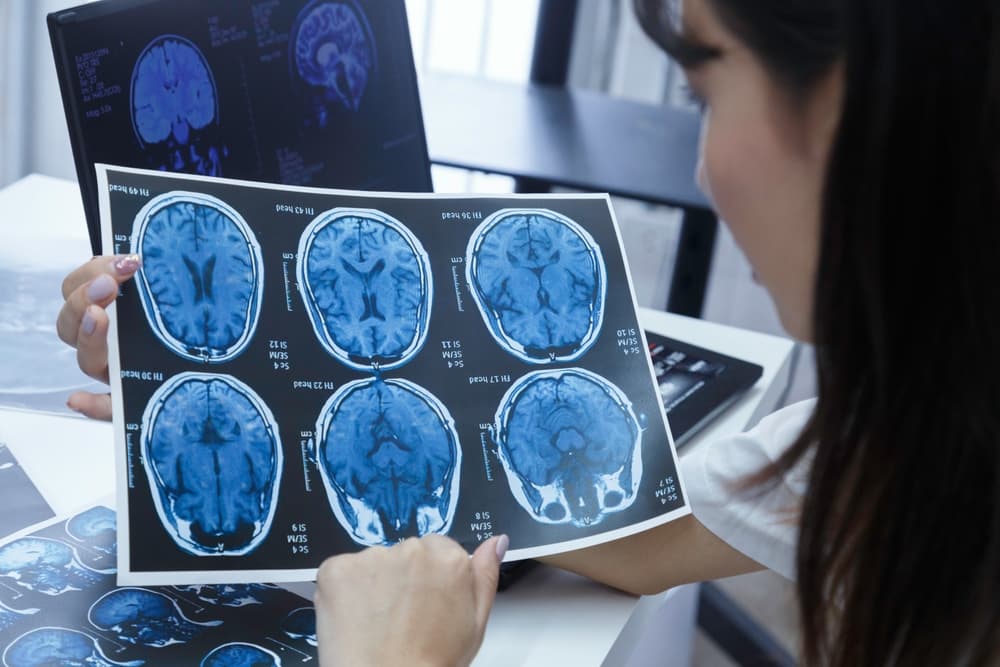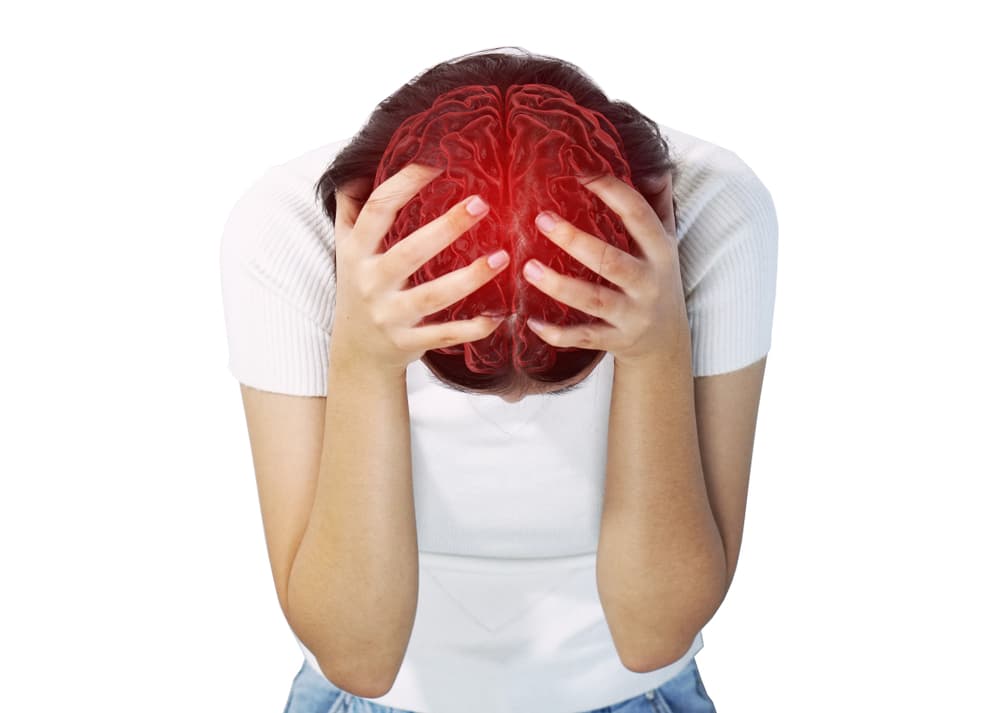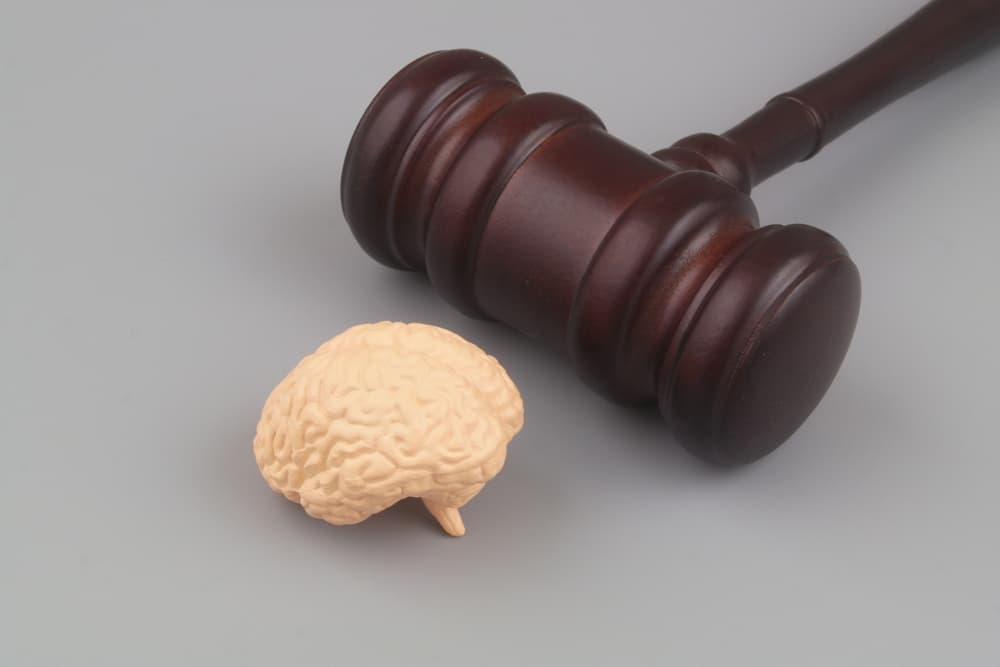When accident victims suffer a blow to the head or strike their head on a hard surface in an accident, they may suffer a concussion. Concussion injuries can result in debilitating and sometimes permanent symptoms, depending upon their severity.
In addition to seeking prompt medical treatment for a concussion, accident victims must seek out experienced legal representation as soon as possible.
A knowledgeable personal injury lawyer can investigate the circumstances of your accident, gather medical documentation, and present your concussion claim to the appropriate insurance company. Your lawyer can then handle every step of the process for you and pursue the compensation you deserve for your injury.
Types of Occurrences That May Lead to Concussion Injuries

Concussion injuries, often associated with sports or accidents, can result from various occurrences stemming from others’ negligence. These incidents range from everyday mishaps to more serious negligence, each posing risks to individuals’ safety and well-being.
One common occurrence is slip-and-fall accidents, where negligence in maintaining safe premises can lead to hazardous conditions. Wet floors left unmarked or cluttered walkways can cause individuals to trip or lose their balance, resulting in falls that may lead to concussions.
Another type of occurrence is car accidents, where negligent driving behaviors such as speeding, distracted driving, or driving under the influence can result in collisions. The sudden impact from a car crash can jolt the occupants’ heads, causing concussions even if they are wearing seatbelts.
Sports-related incidents also contribute significantly to concussion injuries, often due to inadequate protective gear or improper playing techniques.
Negligence in enforcing safety rules or providing appropriate coaching (or refereeing) can increase the risk of concussions among athletes participating in contact sports like football, soccer, or hockey.
Physical altercations, whether intentional or unintentional, can also lead to concussions when someone strikes an individual in the head. Negligence in controlling aggressive behavior or failing to intervene in escalating situations can result in serious head injuries during fights or altercations.
Furthermore, workplace accidents can occur due to negligence in providing a safe working environment or inadequate training in proper safety procedures.
Falls from heights, being struck by falling objects, or accidents involving machinery can all lead to head injuries and concussions if proper precautions are not taken.
Recreational activities such as cycling, skiing, or skateboarding can also result in concussion injuries. Specifically, negligence in monitoring weather conditions, maintaining equipment, or adhering to traffic rules can increase the risk of accidents during recreational pursuits.
Complications Resulting from a Concussion Injury

Concussion injuries that someone else’s negligence has caused can lead to various medical complications and require specific treatments to ensure proper recovery. These complications can affect different aspects of a person’s health and well-being, requiring careful management by healthcare professionals.
One common complication is post-concussion syndrome (PCS), where symptoms such as headaches, dizziness, fatigue, and cognitive difficulties persist beyond the expected recovery period.
PCS can significantly affect daily functioning and quality of life, requiring specialized treatment such as cognitive therapy, physical rehabilitation, and medication management to alleviate symptoms and improve outcomes.
Another potential complication is second impact syndrome (SIS), which occurs when a person sustains a second concussion before fully recovering from the first. This rare but severe condition can lead to rapid brain swelling and potentially life-threatening consequences.
Preventing SIS involves:
- Closely monitoring symptoms.
- Allowing adequate time for recovery between concussions.
- Implementing strict return-to-play guidelines for athletes.
Concussion injuries can also increase the risk of developing mental health issues such as anxiety, depression, and post-traumatic stress disorder (PTSD).
The physical and emotional toll of sustaining a concussion, coupled with the stress of recovery and potential long-term effects, can exacerbate existing mental health concerns or trigger new ones. Treatment may involve therapy, medication, and support from mental health professionals to effectively address these challenges.
In some cases, individuals may experience cognitive impairments following a concussion, including problems with memory, attention, and executive function. These cognitive difficulties can affect academic or job performance and require specialized interventions, like cognitive rehabilitation therapy, to restore cognitive abilities and improve outcomes.
Moreover, prolonged or unresolved concussion symptoms may bring about structural or neurological issues that require further evaluation and treatment.
Imaging studies, such as MRI or CT scans, may be necessary to rule out complications like brain bleeds, hematomas, and other structural abnormalities that require surgical intervention.
Medical complications resulting from a concussion injury due to someone else’s negligence can vary in severity and complexity. Prompt recognition, appropriate treatment, and thorough rehabilitation are essential to minimize the long-term consequences and facilitate recovery.
Collaboration between healthcare providers, rehabilitation specialists, and support networks is crucial in addressing the various needs of individuals who have experienced concussion injuries.
Legally Proving a Concussion Injury Claim
Proving a concussion injury case resulting from someone else’s negligence requires gathering evidence and building a compelling legal argument to establish liability and secure compensation for damages.
Several key steps are involved in this process, each aimed at demonstrating the negligence of the responsible party and the extent of the injury suffered.
These steps include:
- First, documenting the circumstances surrounding the incident that led to the concussion is important. This includes collecting witness statements, photographs of the scene, and any relevant documentation, such as accident reports or medical records. Eyewitness testimony can be particularly valuable in corroborating the events leading up to the injury and identifying any negligent actions by the at-fault party.
- Next, establishing a causal link between the negligent actions of the at-fault party and the resulting concussion injury is crucial. This may involve obtaining expert opinions from medical professionals specializing in traumatic brain injuries, who can provide testimony regarding how the damage occurred, the severity of the concussion, and the long-term effects on the victim’s health and well-being.
- Furthermore, demonstrating the extent of the damages incurred as a result of the concussion is essential for securing compensation. This includes documenting medical expenses, such as hospital bills, doctor’s visits, diagnostic tests, and rehabilitation costs. In addition, lost income or diminished earning capacity resulting from the injury should be carefully documented to quantify the financial repercussions on the victim’s life.
- Moreover, gathering evidence of non-economic damages, such as pain and suffering, emotional distress, and loss of enjoyment of life, is essential. This may involve testimony from the victim, family members, or mental health professionals regarding the physical and emotional toll of the concussion injury on the victim’s life and relationships.
- In some cases, demonstrating a pattern of negligence or misconduct by the at-fault party may strengthen the victim’s case. This may involve uncovering past incidents or complaints against the at-fault party related to similar negligent actions, which can establish a pattern of behavior that contributed to the injury in question.
Proving a concussion injury case requires careful preparation, thorough investigation, and skilled legal representation.
By compiling compelling evidence, demonstrating causation and damages, and presenting a persuasive legal argument, victims of concussion injuries can seek accountability and obtain the compensation they deserve for their losses.
Litigating a Concussion Case in the Court System

Litigating a concussion injury case resulting from someone else’s negligence involves several steps aimed at seeking legal recourse and securing compensation for the victim’s damages.
These steps require careful planning, thorough investigation, and skilled legal representation to build a strong case and advocate for the victim’s rights.
The first step in litigating a concussion injury case is to consult a qualified personal injury attorney who handles traumatic brain injuries. The attorney will evaluate the circumstances surrounding the injury, assess the strength of the case, and advise the victim on their legal rights and options for pursuing compensation.
Once retained, the attorney will initiate the legal process by filing a complaint or petition in the appropriate court, naming the negligent party as the at-fault party (defendant).
This legal document outlines the allegations against the defendant, including the negligent actions that led to the concussion injury and the damages the victim suffered as a result.
After filing the complaint, the next step is the discovery phase, where both parties exchange information and gather evidence to support their respective positions.
This may involve conducting depositions, where the attorneys question witnesses under oath, issuing subpoenas to obtain documents or records relevant to the case, and engaging in other discovery methods to uncover key facts and evidence.
Throughout the discovery process, the attorney will work closely with medical experts to evaluate the extent of the victim’s injuries, establish causation, and quantify the damages incurred.
Your lawyer may need to inspect medical records, conduct independent medical examinations, and obtain expert opinions to support the victim’s claims.
Once discovery is complete, the case may proceed to settlement negotiations or mediation, where the parties attempt to reach a mutually agreeable resolution without going to trial.
During this stage, the attorney will advocate for the victim’s interests and negotiate with the defendant’s legal team to secure a fair and just settlement that adequately compensates the victim for their losses.
If the parties cannot reach a settlement, the case will proceed to trial, where both sides will present the evidence before a judge and/or jury. The attorney for the victim will argue the victim’s case, present witness testimony, and cross-examine opposing witnesses to establish liability and prove the extent of the damages suffered due to the concussion injury.
Following the trial, the judge or jury will render a verdict determining whether the defendant is liable for the victim’s injuries and, if so, the amount of compensation they will receive. If either party is dissatisfied with the verdict, they may have the option to appeal the decision to a higher court for further review.
Litigating a concussion injury case involves a series of steps aimed at holding the negligent party accountable and obtaining compensation for the victim’s damages. With careful preparation, thorough investigation, and skilled legal representation, victims of concussion injuries can pursue justice and obtain the financial resources needed to support their recovery and rehabilitation.
Recovering Favorable Damages for a Concussion Injury
In a concussion injury case resulting from someone else’s negligence, individuals may seek various types of damages to compensate for their losses and hold the negligent party accountable.
These damages can be classified into three main categories: economic damages, non-economic damages, and punitive damages.
- Economic Damages – Economic damages refer to the financial losses directly resulting from the concussion injury and its consequences. These may include medical expenses such as hospital bills, doctor’s visits, diagnostic tests, medication costs, and rehabilitation services. Additionally, economic damages may include lost income or diminished earning capacity resulting from the inability to work due to the injury. By quantifying these tangible financial losses, economic damages aim to restore the victim to the financial position they would have been in had the injury never happened.
- Non-economic Damages – Non-economic damages, on the other hand, compensate for the intangible losses and hardships the victim experienced as a result of their concussion injury. These may include pain and suffering, emotional distress, mental anguish, loss of enjoyment of life, and loss of consortium (the deprivation of companionship or support from a spouse or family member). Unlike economic damages, which can be easily quantified, non-economic damages are more subjective and may vary significantly depending on the circumstances.
- Punitive Damages – In some cases involving particularly egregious or reckless conduct by the at-fault party, the victim may pursue punitive damages in addition to economic and non-economic damages. Punitive damages punish the at-fault individual for their wrongful actions and discourage others from engaging in similar conduct.
The amount of damages a victim may receive in a concussion injury case will depend on various factors, including the severity of their injury, the extent of the damages incurred, the at-fault party’s degree of negligence, and the jurisdiction’s laws governing damages awards.
To maximize their recovery, individuals should consult with a qualified personal injury attorney who can assess the merits of their case, advocate for their rights, and pursue all available avenues for compensation.
By seeking economic, non-economic, and potentially punitive damages in a concussion injury case, individuals can obtain the financial resources necessary to cover their losses, support their recovery, and hold negligent parties responsible for their actions.
Speak with a Knowledgeable Personal Injury Lawyer in Your Area Right Away

If you or someone you love recently suffered a concussion injury in an occurrence resulting from someone else’s negligence, an experienced personal injury lawyer can handle every step of your claim or lawsuit.
In addition to filing a claim with the responsible party’s insurance company, your lawyer can aggressively negotiate for favorable settlement compensation on your behalf or litigate your case to a conclusion in the court system.
